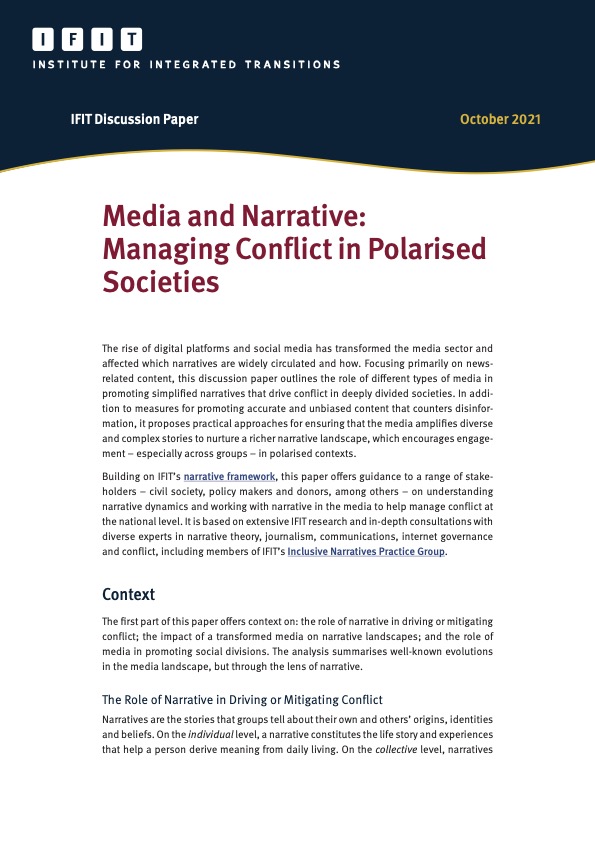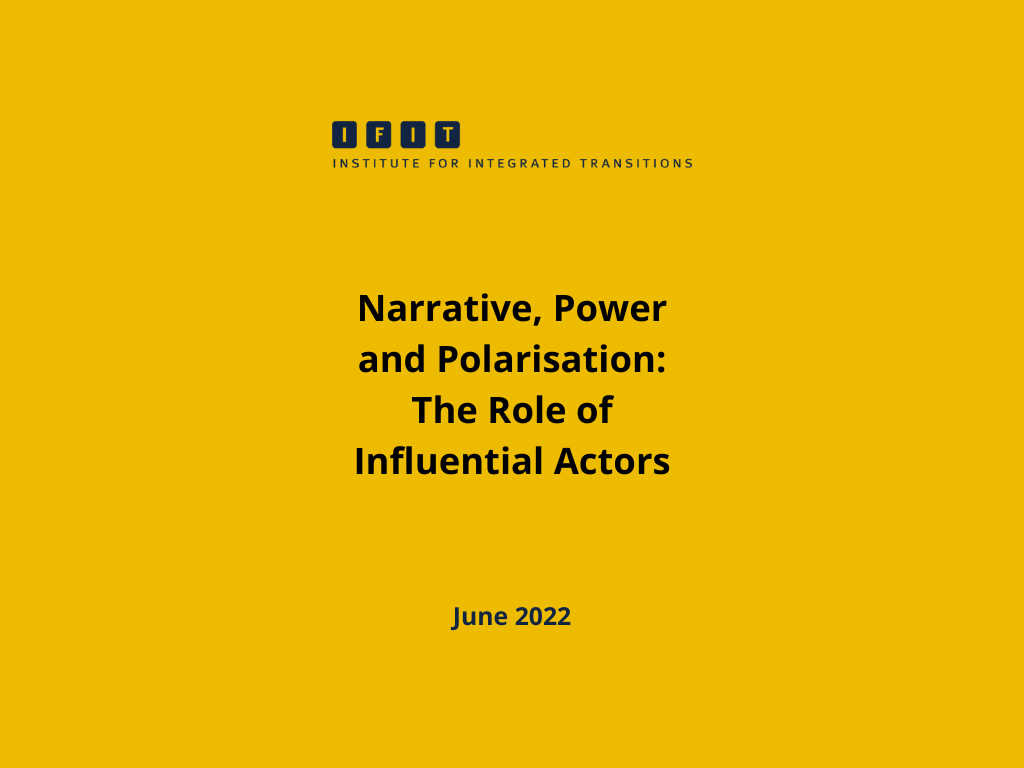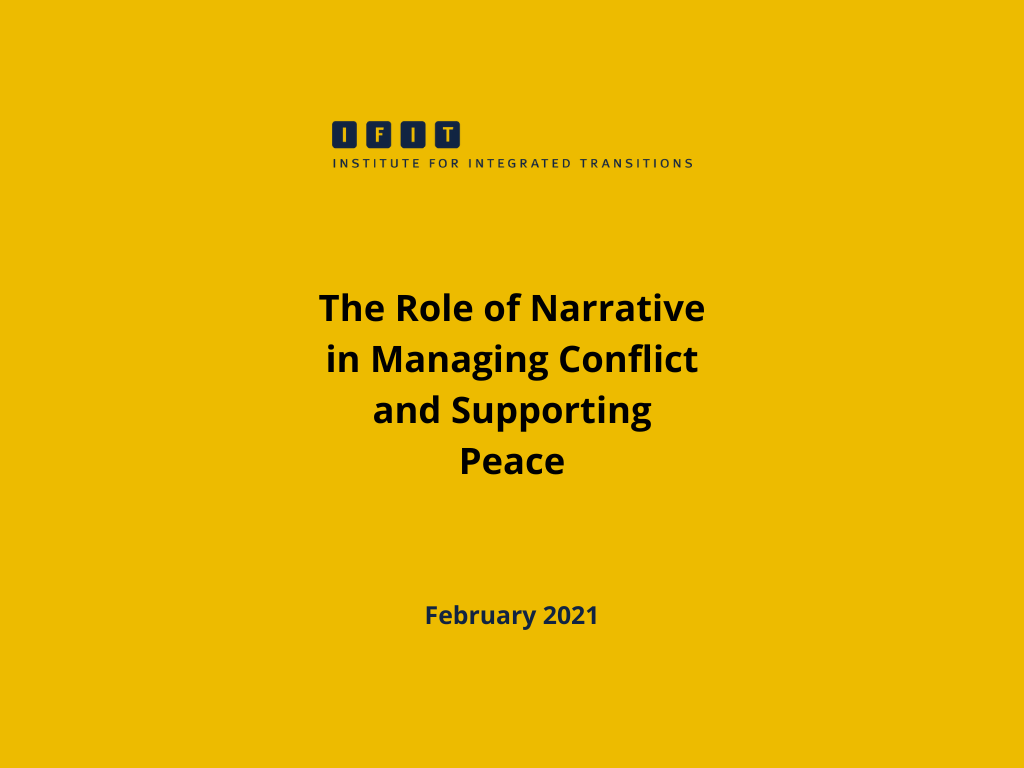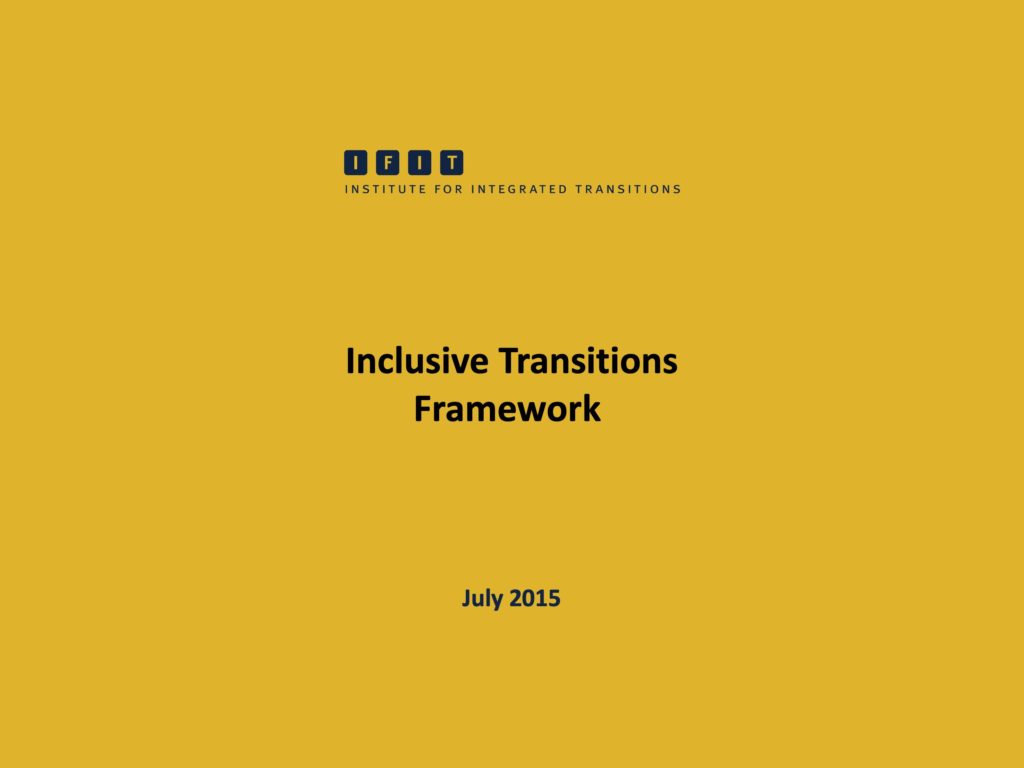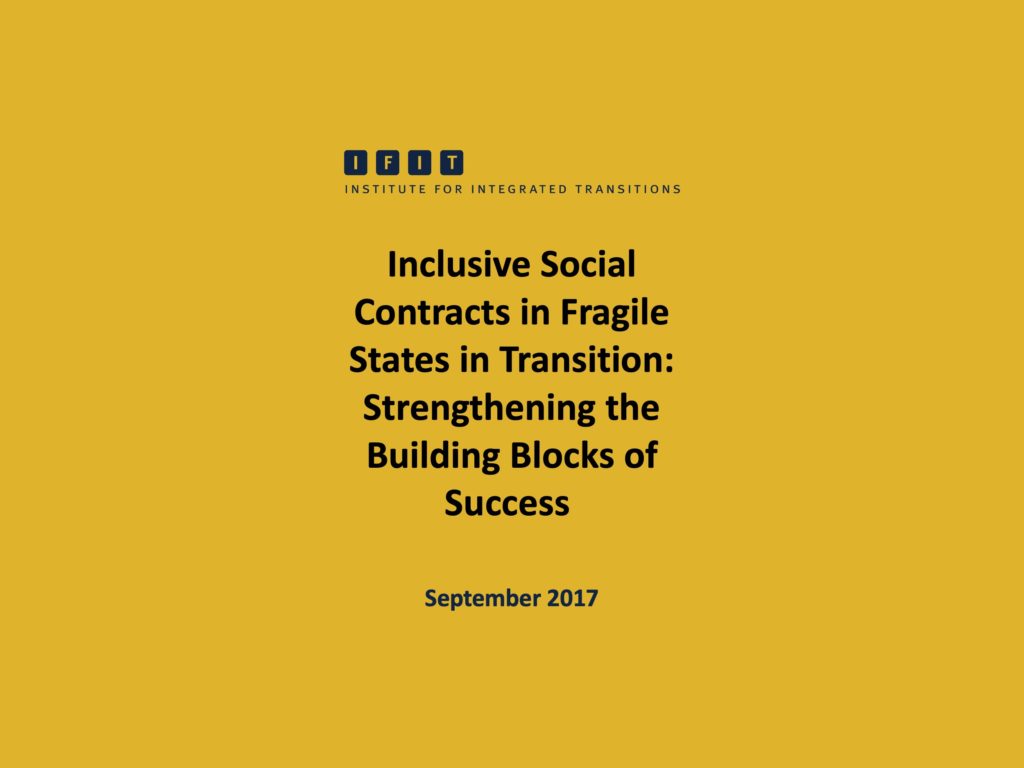Publication
/ Inclusive Narratives
Oct 2021
Media and Narrative: Managing Conflict in Polarised Societies
The rise of digital platforms and social media has transformed the media sector and affected which narratives are widely circulated and how. Developed by Mary Harper, Miguel Silva, Seth Kaplan and Solon Simmons in cooperation with Jasmina Brankovic, this discussion paper outlines the role of different types of media, including social media, in promoting simplified narratives that drive conflict in deeply divided societies. In addition to measures for promoting accurate and unbiased content that counters disinformation, it proposes practical approaches for ensuring that the media amplifies diverse and complex stories to nurture a richer narrative landscape, which encourages engagement across groups in polarised contexts.
Based on extensive IFIT research and in-depth consultations with experts in narrative theory, journalism, communications, internet governance and conflict, this paper offers guidance to a range of stakeholders – civil society, policy makers and donors, among others – on understanding narrative dynamics and working with narrative in the media to help manage and mitigate conflict at the national level.
The DOI registration ID for this publication is: https://doi.org/10.13140/RG.2.2.29977.75361
You may also be interested in
The rise of digital platforms and social media has transformed the media sector and affected which narratives are widely circulated and how. Developed by Mary Harper, Miguel Silva, Seth Kaplan and Solon Simmons in cooperation with Jasmina Brankovic, this discussion paper outlines the role of different types of media, including social media, in promoting simplified narratives that drive conflict in deeply divided societies. In addition to measures for promoting accurate and unbiased content that counters disinformation, it proposes practical approaches for ensuring that the media amplifies diverse and complex stories to nurture a richer narrative landscape, which encourages engagement across groups in polarised contexts.
Based on extensive IFIT research and in-depth consultations with experts in narrative theory, journalism, communications, internet governance and conflict, this paper offers guidance to a range of stakeholders – civil society, policy makers and donors, among others – on understanding narrative dynamics and working with narrative in the media to help manage and mitigate conflict at the national level.
The DOI registration ID for this publication is: https://doi.org/10.13140/RG.2.2.29977.75361


